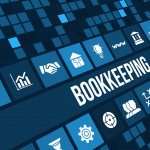Introduction
Freelancers in the UK face a unique set of financial environments and challenges. Navigating the tax landscape effectively not only ensures compliance but also optimizes your financial health. This comprehensive guide will delve into practical tax-saving strategies tailored for freelancers, including sole proprietors and independent contractors across various industries.
Overview of Tax Responsibilities for UK Freelancers
Self-Assessment and Tax Filing Deadlines
As a freelancer, you’re required to submit a self-assessment tax return annually. This process is your responsibility to report your income to HM Revenue and Customs (HMRC) and calculate the tax due. The key deadlines are:
- 31st October: Paper tax returns.
- 31st January: Online tax returns and first payment on account.
- 31st July: Second payment on account.
Understanding these deadlines is crucial to avoid penalties and ensure timely compliance.
National Insurance Contributions
National Insurance (NI) contributions are critical for freelancers as they count towards your state benefits, including the State Pension and Employment and Support Allowance. There are two types relevant to freelancers:
- Class 2: If your profits are £6,515 or more annually.
- Class 4: If your profits exceed £9,568.
These contributions are part of your self-assessment tax return and impact your entitlement to certain benefits.
Tax Deductions and Allowances
Common Deductible Expenses
Freelancers can deduct various costs directly related to their business, effectively reducing taxable income:
- Home Office Costs: Proportionate part of internet, heating, electricity if you work from home.
- Travel Expenses: Costs of traveling to client sites or business meetings.
- Professional Development: Courses or training directly related to your business.
Understanding what expenses are allowable helps maximize your deductions and reduce your tax bill.
Specific Tax Allowances
- Trading Allowance: A £1,000 allowance that can be deducted from your income instead of actual expenses if it’s more beneficial.
- Annual Investment Allowance (AIA): Up to £1 million on qualifying investments in business equipment.
Using these allowances strategically can significantly decrease your taxable income.
Advanced Tax Strategies
Forming a Limited Company
For some freelancers, incorporating a limited company can be tax-efficient. This structure allows you to pay yourself a salary and dividends, potentially lowering your overall tax liability compared to sole proprietorship.
Pension Contributions
Contributions to a pension scheme are tax-free up to £40,000 annually. This not only prepares you for retirement but also reduces your immediate tax liability by lowering your taxable profit.
Tools and Resources for Tax Management
Accounting Software
Utilizing robust accounting software like QuickBooks, Xero, or FreeAgent can simplify expense tracking, invoice management, and tax filing. These tools are invaluable for keeping accurate records, which are essential for supporting claims on tax returns.
Maintaining Records
Keeping detailed records of income and expenses is crucial. HMRC can request proof of expenses claimed for up to six years after filing the return, making thorough record-keeping a necessity for every freelancer.
Staying Updated with Tax Laws
Keeping abreast of changes in tax legislation is vital as these can directly impact your financial strategies:
- Regularly visit the HMRC website for official updates.
- Follow financial news and subscribe to updates from professional bodies relevant to your industry.
Case Studies
Case Study 1: John the Graphic Designer John used the Trading Allowance to simplify his tax reporting, as his additional expenses were below £1,000, saving time and reducing his taxable income.
Case Study 2: Emily the Consultant By forming a limited company, Emily managed to significantly reduce her personal tax liability by optimizing her salary and dividend payments under current tax laws.
Conclusion
Understanding and applying these tax-saving tips can make a substantial difference in your annual tax planning. As a freelancer in the UK, taking full advantage of these strategies ensures that you not only comply with tax laws but also secure your financial future. Engage with a financial advisor or a tax professional to tailor these strategies to your specific circumstances, helping you to navigate the complexities of the tax system effectively.







